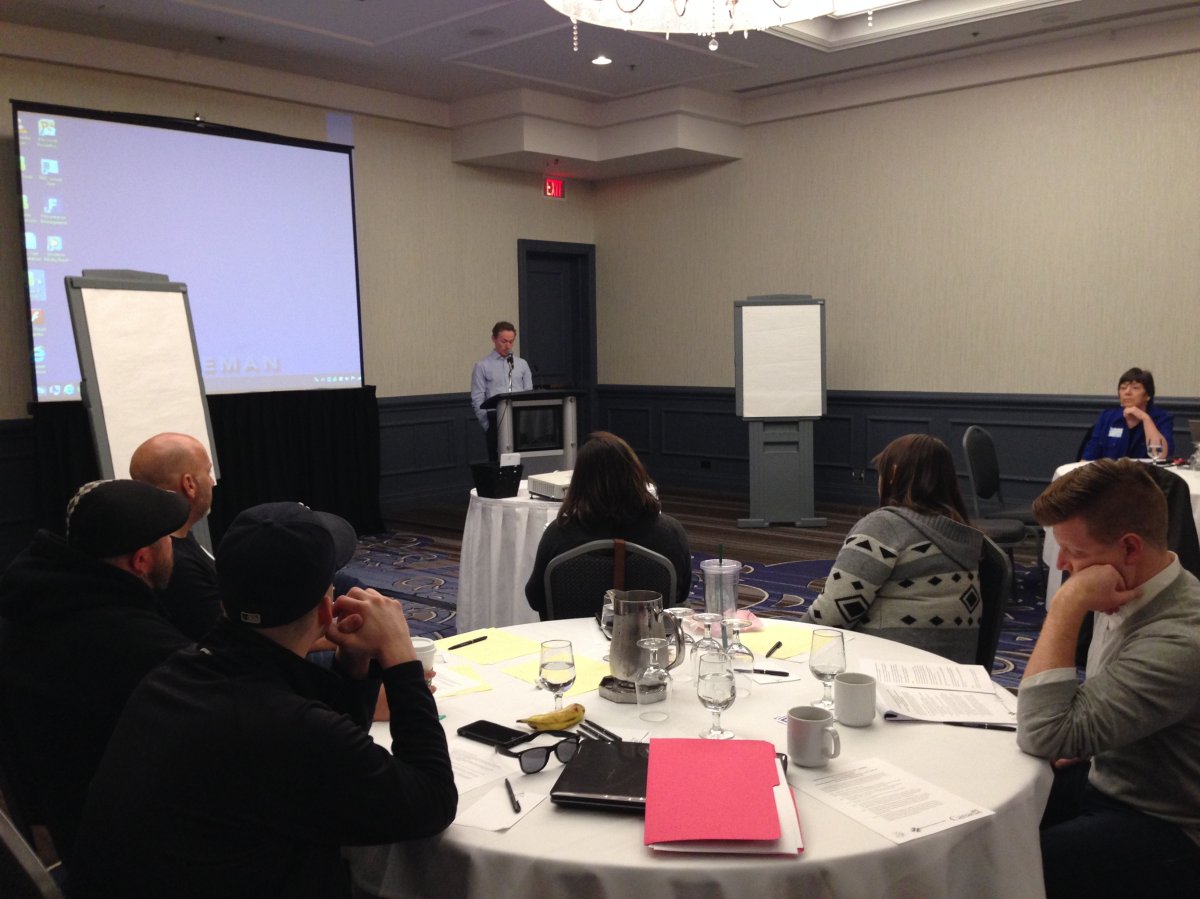Members of community advisory boards from across the province met Wednesday, to find ways to reduce homelessness in New Brunswick.

Approximately 50 service providers and provincial partners from Saint John, Moncton, Bathurst and Fredericton got together to discuss solutions.
It was the first meeting, and the first chance for members of the community advisory boards to hear and examine the results of the provincial Point-in-Time count, that took place in February.
There are approximately 200 people experiencing homelessness in New Brunswick, 50 of those people are in Fredericton, although organizers say that doesn’t include ‘hidden homelessness’-referring to people who are staying with friends and family.
Community Entity Coordinator for the Saint John Human Development Council, Greg Bishop, says the summit is a chance to look to homelessness from a provincial perspective.
“The number [of people experiencing homelessness in the province] is relative to our population, but when you look at the situations that homeless individuals are in and the barriers they’re facing, it’s a significant issue,” said Bishop.
Provincial Point-in-Time (PIT) Count Coordinator Michael MacKenzie spoke about the count and what the results mean for the province moving forward. He presented some of the findings to the advisory boards.
“What we’re looking at today is kind of what are the trends in homelessness in New Brunswick, and how do they measure-up in terms of a national perspective,” MacKenzie said.
“In terms of gender breakdown, for example, typically we would see 70 per cent male and 30 per cent female in-terms-of homelessness across the country, and that’s quite close to what we found in New Brunswick. We had 60 per cent male, 35 per cent female, and one per cent transgender, but pretty close overall.”
MacKenzie says they are also comparing the results amount the four cities represented at the summit.
“In terms of the overall numeration, we had 50 individuals that were identified to be experiencing absolute homelessness. That includes individuals who are staying at shelters- emergency shelters, violence-against-women shelters, ‘sleeping rough’, and it also includes people in transitional housing,” MacKenzie said.
Wednesday’s summit was a pre-conference event leading up to the New Brunswick Housing Association’s annual meeting that will take place over the next three days.
“I want folks who are participating in the event to leverage it to hopefully move some of the projects that they have happening locally, forward. There are a lot of activities, goals, plans to help reduce and end homelessness as we know it in our community. A lot of conversations are happening regionally, but we need to tie them together so that as a province we can push the agenda,” said Bishop.
Former Community Development Coordinator (CDC) of the Greater Moncton Homelessness Steering Committee (2007-2016), Sue Calhoun attended the summit. She says she hopes everyone can work together to come up with solutions by exchanging ideas and experiences.
“The situation that we’re in right now, we’re in ‘Housing First’, which means you just house everybody, then you provide supports to keep them housed,” she said. “The biggest challenge that we have right now is that we have no affordable housing- or very little. So every time agencies are looking to house somebody, it’s a challenge to find a place to house them that is affordable for them.”
Calhoun says that’s the case in Moncton, as well as in the other cities.
“We have a large group of people who are considered ‘non-elderly singles’, they make $537 dollars a month total, and there’s no affordable housing- or very little for $537 a month. That’s why you see them staying in the shelters, living on the streets, sometimes in rooming houses- which aren’t in the best condition because there’s nothing affordable for them other than subsidized housing from the government, and there’s very little of that,” Calhoun sad.
Outflow Ministry Executive Director of Jayme Hall travelled from Saint John to hear the results. The Christian faith-based charity currently runs a men’s shelter in Saint John. Hall says he wants to see a collaborative effort in reaching those that are on the streets.
“Housing is really big. It’s important, we need to make sure everybody has a warm, safe, affordable place,” said Hall.
Hall says at Outflow’s shelter they average between 15 and 25 guys per night. The results were new to him today.
“Just getting them first-hand today, so it will be good to just kind of unfold that a bit today and see how it affects us in Saint John,” said Hall.
He said their goal is to go men out of the shelter and into better housing. Hall says being at the summit is a step in the right direction.




Comments